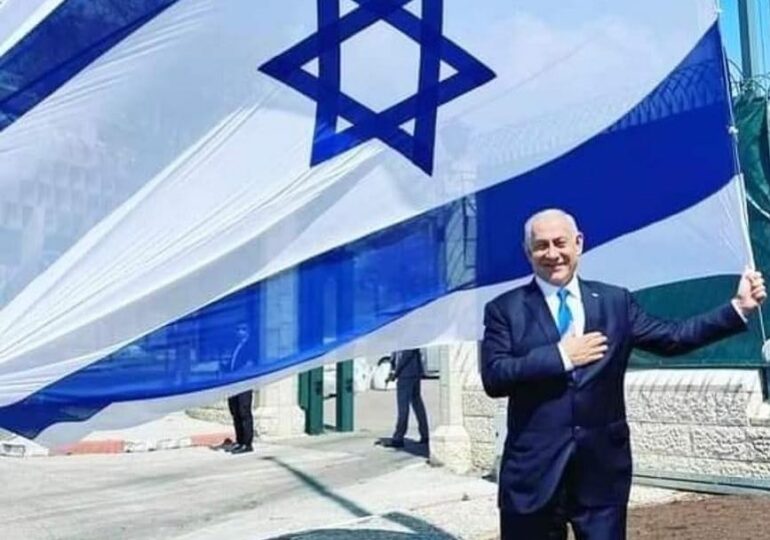Beyond Israel’s stated objective of destroying what it calls an existential threat from Iran’s nuclear capabilities through its Friday attacks, Benjamin Netanyahu has a broader goal – regime change in Tehran.
In this scenario, he may hope that the unprecedented attacks will trigger a chain reaction leading to disturbances that will overthrow the Islamic Republic, as commented by BBC.
He stated in a declaration on Friday evening that "The time has come for the Iranian people to rally around its flag and its historical heritage, defending freedom from the malevolent and oppressive regime."
- Iran attacked Israel with dozens of ballistic missiles. Explosions in Tel Aviv, Iron Dome couldn't handle it. Netanyahu calls on Iranians to revolt (Video)
- LIVE Israel-Iran conflict escalates. Multiple explosions in Tehran, Tel Aviv, and Jerusalem. Hundreds of casualties (Photo & Video)
Many Iranians are dissatisfied with the state of the economy, lack of freedom of expression, women's rights, and minority rights. Israel's attack represents a real threat to Iran's leadership.
The attacks killed the commander of the Iranian Revolutionary Guard Corps (IRGC), the chief of staff of the armed forces, and many other high-ranking IRGC officials, and the Israeli attack is not over yet. Iran retaliated on Friday afternoon, with the Revolutionary Guard declaring that they carried out attacks against "dozens of targets, military centers, and air bases."
The situation escalated rapidly, and after Iran's attacks, Netanyahu stated: "More attacks are coming." Several Iranian leaders could be targeted by them.
- Why Netanyahu wanted to attack Iran now, what window he had, and what is the worst response scenario Interview
- Israel's attack on Iran causes major damage even in the Kremlin. Putin scared of the precision of the strikes
Netanyahu's Bet
Israel may believe that the attacks and killings of leaders could disrupt the regime and pave the way for a popular revolt. At least that's what Netanyahu hopes. But this is a gamble - a big one.
There is no evidence that such a chain reaction will start, but even if it does, it is not clear where such a process could lead.
Those with the most power in Iran are those who control the armed forces and the economy, and most of it is in the hands of extremists within the IRGC and other unelected bodies.
They do not need to stage a coup as they are already in power and could lead Iran into a more confrontational direction.
Another possible outcome could be the collapse of the regime, followed by Iran descending into chaos. With a population of around 90 million, events in the country would have a massive impact throughout the Middle East.
What Would Be the Alternative to the Current Regime
Israel's desired outcome seems to be a revolt ending with the takeover by a friendly force, but a major question here is who could be the alternative?
Iranian opposition forces have been highly fragmented in recent years, with no clear options here.
After the events of 2022, known as the "Women and Life Freedom Movement," which swept most of Iran like a storm, some opposition groups tried to form a coalition from a wide range of groups and activists against the Islamic Republic.
However, this did not last long due to disagreements on who leads the coalition and what form the regime would take after overthrowing the current one. Israeli leaders may consider some of these groups or figures as preferred alternatives.
For example, former Iranian Crown Prince Reza Pahlavi, the son of the former Shah of Iran who was overthrown in the 1979 Islamic revolution. He lives in exile and actively tries to influence foreign actors to support his cause. He has also visited Israel in recent years.
While gaining popularity among some Iranians, it is not clear if this could quickly turn into a force for regime change.
There is also Mujahideen-e Khalq (MEK), an exiled opposition group advocating for the overthrow of the Islamic Republic but against a return to monarchy.
After the revolution, MEK went to Iraq and joined Saddam Hussein in the early 1980s during his war against Iran, making them unpopular among many Iranians.
The group remains active and has friends in the US, some of whom are close to Donald Trump's camp.
However, it seems to have less influence on the White House than during Trump's first term when senior US officials, including Mike Pompeo, John Bolton, and Rudy Giuliani, appeared at MEK gatherings and delivered supportive speeches.
There are also other political forces, from those wanting to establish a secular democracy to those desiring a parliamentary monarchy and so on.
It may be too early to assess the full extent of Friday's attacks, but during the exchanges of fire last year between Iran and Israel, there were no strong indications that Iranians saw those situations as an opportunity to overthrow the regime.
However, those events didn't even come close to the level of destruction seen during Friday's attacks.
The Islamic Republic's Ultimate Goal
Furthermore, we must ask what Iran's ultimate goal is now. Some may see the safest way out as continuing negotiations with the US. But returning to negotiations, as Trump demanded, is a tough choice for Iranian leaders as it would mean accepting defeat.
Another option is to continue retaliatory attacks against Israel. This seems to be their preferred option and what Iranian leaders have promised their supporters. But even if the attacks continue, they could invite further Israeli strikes.
Tehran has threatened in the past to target US bases, embassies, and points of interest in the region. However, this is not easy to accomplish, and attacking the US would directly draw them into conflict, something Iran least desires.
Neither of these options is easy for either party, and their consequences are hard to predict.

